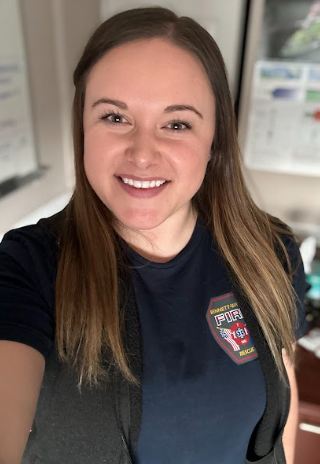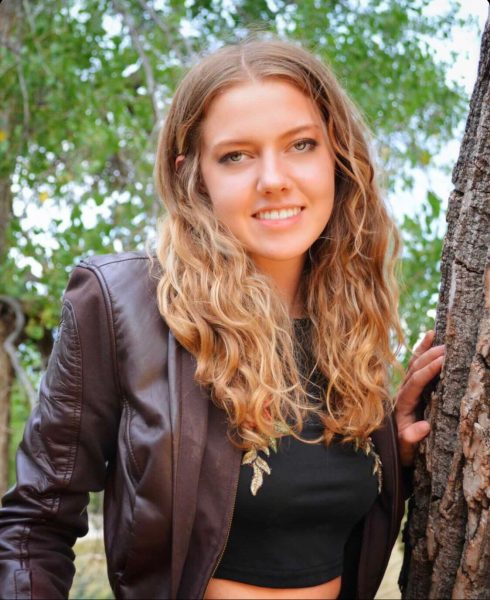Nestled amidst sprawling landscapes and enveloped by miles of plains lies the heart of Douglas County, Castle Rock. An hour away from Denver and 40 minutes away from the nearest university, the town’s awkward location can pose quite the inconvenience for its 80,000 residents, especially for prospective college students.
Commuting to school, a commitment many students have no choice in, is no easy feat living in a town so geographically distant from four-year universities. A 40-minute commute to the University of Denver might be reasonable, but the $56,000 tuition? For many families, not so much.
Commuters’ choices are limited to the University of Denver or the University of Colorado Colorado Springs, both of which require first-year students to live on campus. For adult learners with children and jobs, obtaining a bachelor’s degree isn’t feasible due to the commute alone. Arapahoe Community College is making strides to mend these challenges.
The two-year school has created seven bachelor degrees in the last few years, five of which are offered at the Sturm Collaboration Campus in Castle Rock. Each of the degrees were designed to prioritize flexibility and accessibility to meet the needs of the growing community.
Bachelor of Science in Nursing
Arapahoe Community College’s first bachelor program, the Bachelor of Science in Nursing, was designed in 2018 due to a shortage of registered nurses in the state of Colorado. Known as the RN-BSN completion program, nursing students at ACC can obtain their associate and bachelor’s degrees simultaneously.
Mary Steggall, the chair of the program, has been professing and creating curriculums for the program since its grassroots. She considers the program’s flexibility to be one of its greatest benefits.
The program is completely online, allowing students to work at their own pace. Nursing students can start the program in the fall, spring or summer and are permitted to take semester-long hiatuses during their degree should they desire to.
Since the majority of nursing students are working in the field while completing the program, professors in the department accommodate their students’ busy schedules.
“We try to be very equitable and very responsive to student needs and help them out if they are going to be late with an assignment,” Steggall said. “My approach is that I’m more concerned with the quality of the work and that [students] are actually learning…than I am about [an assignment] being a couple days late.”

Since the online medium can be challenging for students, the program’s faculty members ensure they are easily accessible, often giving students their personal phone numbers for convenient contact.
The flexibility of the program allows students to take courses at other community colleges if they need to take a course that isn’t offered by ACC a certain semester.
Michelle Bernal, a dually enrolled student in the program, earned her associate in nursing in the fall and will be graduating with her bachelor’s in nursing this spring. Bernal obtained a certified nursing assistant licensure in 2012 and a bachelor’s degree in social work from Metropolitan State University in 2019. It wasn’t until one of her coworkers informed her about community college nursing programs that Bernal decided to apply to ACC and fulfill her aspiration of becoming a registered nurse in pediatrics.
“[In ACC’s] BSN program, the teachers are really supportive and understanding, and it just allows you to foster a lot of growth,” Bernal said. “…You don’t have to be afraid to ask questions or clarify things that you don’t understand.”
Advanced Paramedic Practitioner Bachelor of Applied Science
In 2019, Colorado passed a bill that would allow paramedics with applicable bachelor degrees to become licensed as opposed to certified. Licensures permit paramedics to legally practice paramedicine, while a certification does not. This legislature kick started the creation of ACC’s advanced paramedic practitioner bachelor’s program.
The fully-online degree is also owned by Pueblo Community College and Pikes Peak Community College. Dennis Edgerly, the director of the college’s emergency medical services academy, was involved in the creation and design of the program.
“There are not a lot of four-year degrees in the country that focus on just paramedicine, so we’re very unique just because we exist,” Edgerly said.
Many employment agencies like fire departments give bonuses to paramedics with bachelor’s degrees, some even requiring a bachelor-level of education. The advanced paramedic practitioner degree was designed to provide graduates with the opportunity to obtain leadership positions in the industry, including positions like critical care tech, critical care medic, battalion chief, officer, and more.
Much like the Bachelor of Science in Nursing, this degree has three points of entry and was tailored to accommodate busy schedules. Emergency medical service providers can work anywhere from 24 to 72 hour shifts, so the program was designed to be self-paced.

There are currently 40 students in the program, five of which are graduating this year. Josie Fischer, one of the five graduates, is currently working as a battalion chief.
“Most of [my] classmates are also working professionals, so it’s adult learning for all of us,” Fischer said. “We all work in the same field, so it’s kind of nice to have that camaraderie.”
Before pursuing her advanced paramedic practitioner bachelor’s degree, Fischer obtained a bachelor’s in nursing. She shortly realized nursing wasn’t for her and decided to become a paramedic after one of her advisors told her she would enjoy emergency medicine more. She began ACC’s bachelor program in 2022 and will be graduating this May.
Fischer often recommends the program to her colleagues who are interested in pursuing a bachelors in paramedicine. She considers flexibility to be one of the programs greatest benefits, noting her professors’ perceptivity to students’ variable schedules.
“A lot of the professors are very understanding about all of us working, so they’ve been very open to extending due dates and letting us get some of that coursework done as we are working,” she said. “…They are all very experienced health professionals, especially in the emergency prehospital realm…They can relate.”
For her capstone project, Fischer is researching prehospital ultrasound, also known as point-of-care ultrasound. She will be implementing her research at her current organization with its first trials running this summer.
Bachelor of Applied Science in Medical Laboratory Science
The medical laboratory science bachelor’s degree is a new program at ACC starting this fall. There are currently only two medical laboratory science programs in the state of Colorado, and they are both post-baccalaureate. ACC is the first college in the state to offer a bachelor’s degree in the field.
The two-year program is not only open to the state of Colorado, but to the entire country, as it is completely online. Jennifer Kellogg, the program chair, is anticipating 20 to 30 graduates the first two years.
“I intend to talk with every single student before they enter the program, so I’ll have a personal one-on-one relationship with them,” Kellogg said. “I do intend it to be a very personal program.”
Bachelor Degrees Offered through Colorado State University of Pueblo
Colorado State University of Pueblo and ACC established a partnership in 2019 to create five bachelor programs offered at the Sturm Collaboration Campus in Castle Rock. There are two Bachelors of Science in Computer Information Systems, one in cybersecurity and the other in software development. The other three degrees are Bachelors of Science in Business Administration, including concentrations in management, marketing and accounting.
While most Associate of Applied Science degrees transfer into a Bachelor of Applied Science, these five degrees are unique in that an associate degree transfers into a Bachelor of Science.
The two schools also created a Master of Science in Nursing Education as an extension of the RN-BSN completion program, allowing nursing students to get their bachelor’s and master’s degrees simultaneously. The schools are currently working to create a Master of Science in Nursing Administration as well.
Each of the degrees were created based on community need, including the needs of employers and the positions they need filled in their industries. Sturm is one of three “satellite” campuses that CSU operates at to offer programs based on need and relevance to the location of the educational facility.
Jacob Walter, the associate director of statewide initiative and outreach at CSU Pueblo, oversees the satellite campuses and their day-to-day operations.
“We have a full-time advisor that works at the Sturm Collaboration Campus to advise our students [and] help them connect with other opportunities around the community and opportunities within CSU,” Walter said.
Many of the programs are hybrid, giving students the choice to attend class virtually or in person. Courses are often offered in the evening to accommodate students’ work schedules and other commitments.
One’s journey through higher education is not a one-size-fits-all experience, it is a tapestry woven of diverse threads of backgrounds, aspirations, and challenges. From a social worker becoming a nurse to a nurse becoming a paramedic, higher education holds a transformative power when it is made accessible.









